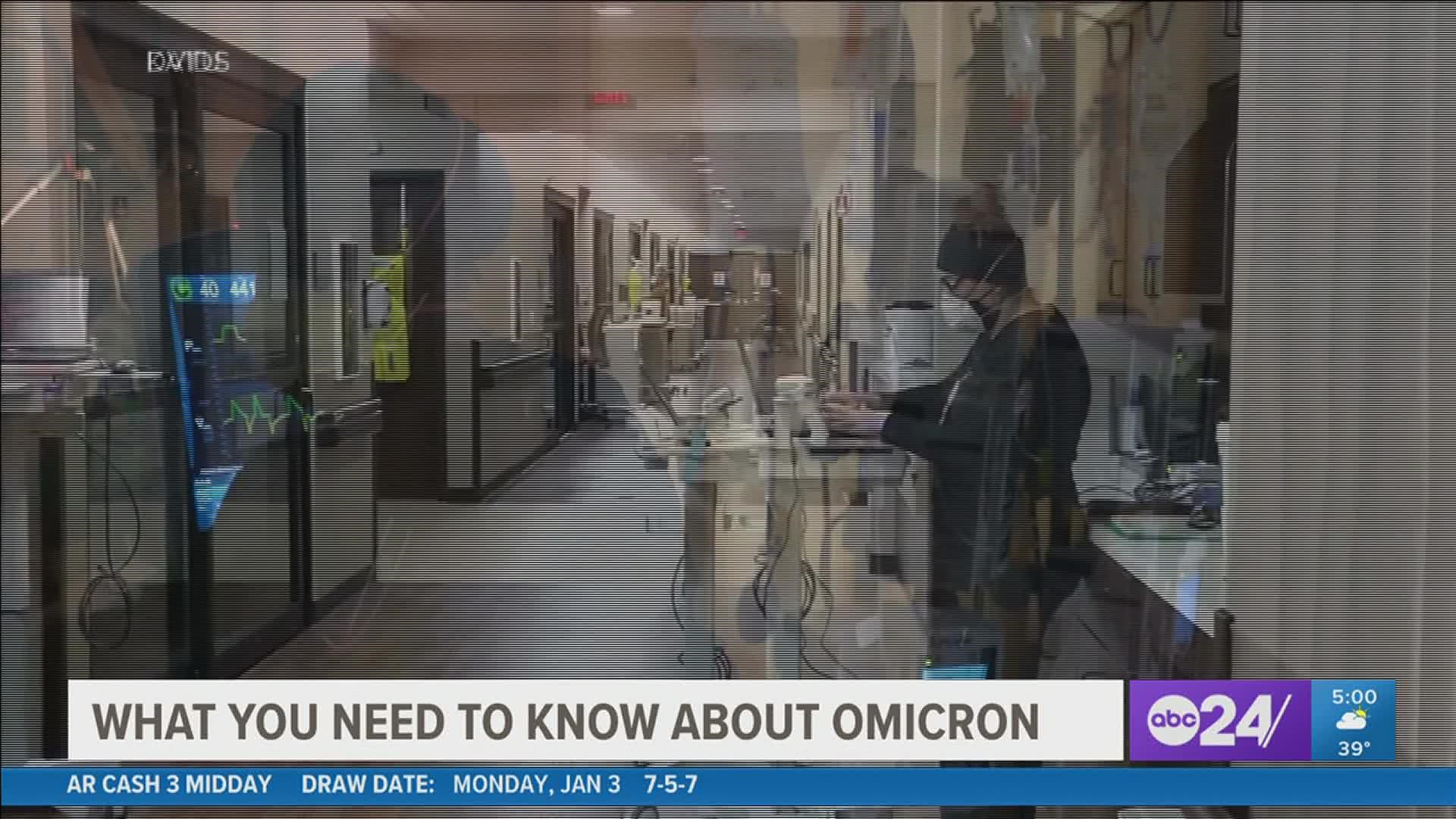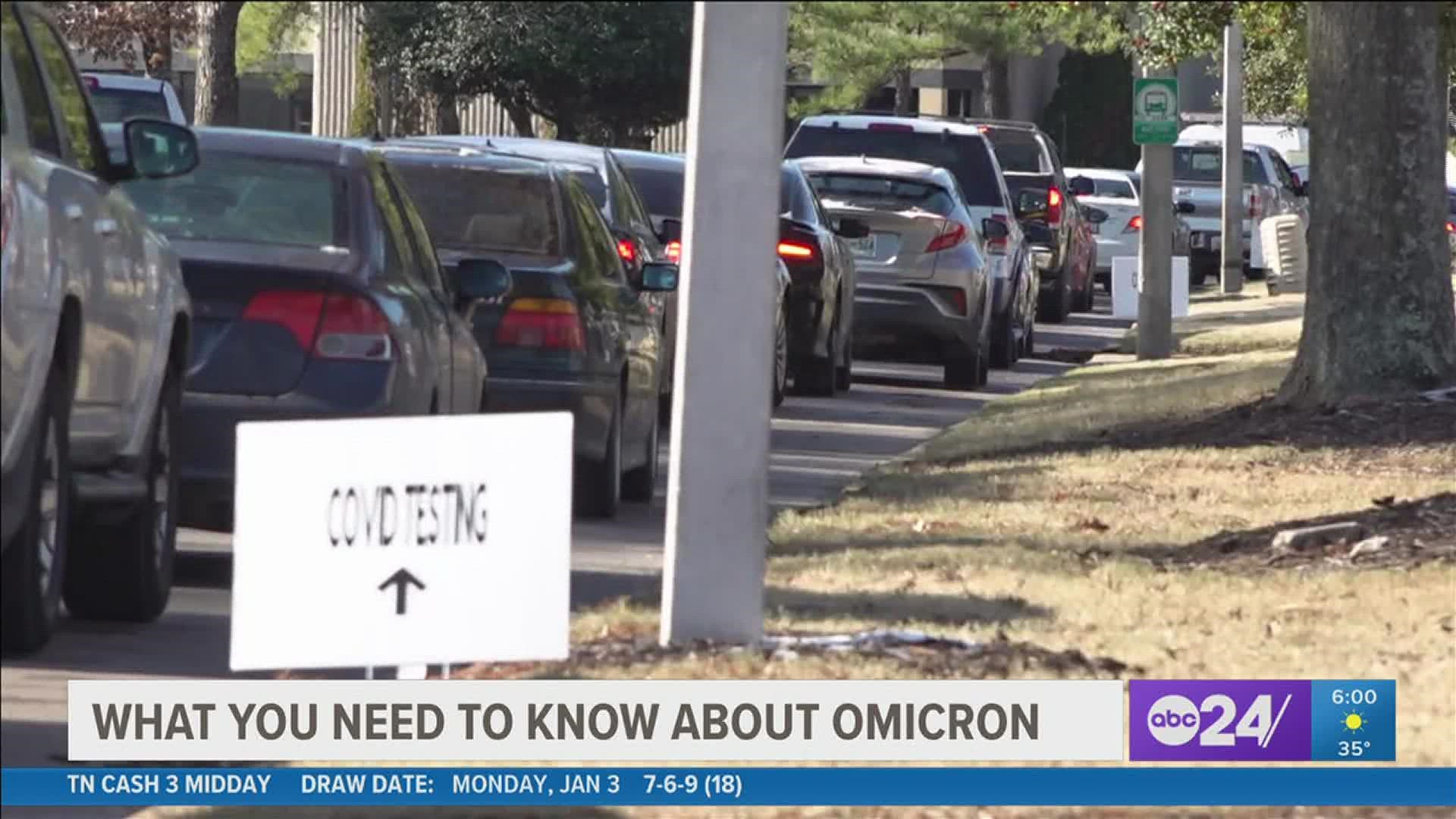MEMPHIS, Tenn — As people head back to work and school after the holidays, COVID-19 cases continue to sweep through the Mid-South.
Medical experts believe the numbers will continue to climb until the Omicron variant peaks. It is expected to peak in late January or early February, according to predictions.
While case numbers are skyrocketing, doctors said the good news is that for most people, Omicron symptoms are not are as severe are previous variants.
"The nice part is it seems, as things are panning out across the world, to be a less dangerous virus. It is less likely that if a person gets it, they will get as sick as Delta. That's nice, but it's a lot more contagious," said Infectious Disease Specialist Dr. Stephen Threlkeld.
Threlkeld said Omicron's symptoms include a sore throat, headache, general malaise, congestion, and fatigue. He added, if you feel crummy, assume you have COVID-19, because it is so prevalent in our area at the moment.
Just a year ago, on January 3, 2021, Shelby County's rolling 7-day average was 680 cases. A year later - January 3, 2022 - the seven-day average is 1,909 cases. During Delta, the seven-day average peaked at 860 on August 24, 2021.
Threlkeld said the case counts are higher than what is reported because they don’t include most people who have taken home tests, or have not taken a test at all.
"We are in one of those waves right now where it's a less severe infection, but it’s getting everyone right now, and that's still a problem for the moment we are in," said Threlkeld.
Threlkeld said the sheer number of cases and hospitalizations of COVID-19 patients are quickly rising.
For example, Threlkeld noted just a few weeks ago; there were only 11 patients at Baptist Memphis with COVID-19. As of Monday morning, there were 113.
Fortunately, Threlkeld said the number of hospitalizations and deaths is not going up as dramatically as the cases numbers.
"We want to see the hospitalizations and the deaths not follow the peak of cases, much as you would see in a common cold. In a common cold, you will see it sweep across the country, but you don't get the hospitalizations and deaths," said Threlkeld.
"It's the first time I've had COVID based on the symptoms, and I believe I had Omicron," said Sean Conway, a COVID-19 patient.
Conway said he had symptoms typical of Omicron, such as a bad headache, cough, congestion. His mother, who was not boosted, has had a more challenging time with the virus.
"She got sicker than me. Her cough lasted longer. She is still not sleeping well," said Conway.
Conway is feeling better and has recovered. His mother has not.
Threlkeld suggested because so many people have mild symptoms or are asymptomatic, if you feel sick, get tested.
"It is very difficult to know whether your symptoms are COVID or something else. So I think testing is so important. We don't want to expose others just because we think it is cold. Assume you have it," said Threlkeld.


